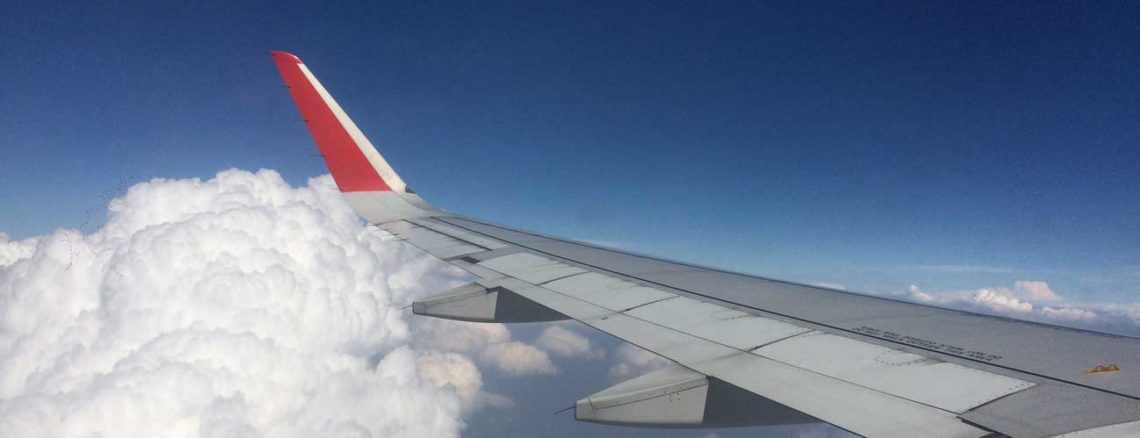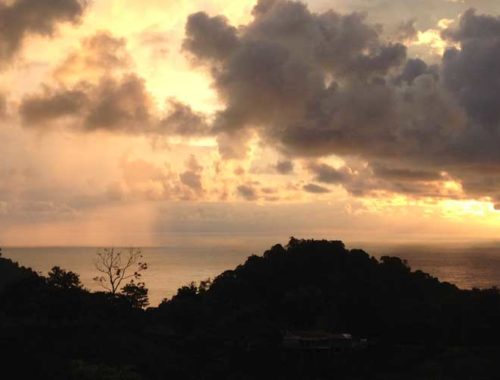
Coronavirus and Digital Nomad Privilege
As I left a month-long house sit in Chiang Mai, Thailand just under two weeks ago, it was hard to not notice just how quiet things were both inside and outside of the airport. On my arrival near the beginning of March, things had been relatively peaceful as well, but it was even more obvious on the way out.
Granted, Northern Thailand is often quieter around this time of year due to burning season, but anyone following the news over the last month or two (or maybe three depending on where you live) knows that there’s another reason tourism is down in CM and so many other places around the world:
COVID-19.
Some Restrictions May Apply
As the virus made its way from China to other parts of the world, travel restrictions followed with it. For those of us who have made a point of exploring the world as much as possible, these restrictions were possibly the first big effect of the coronavirus that really got our attention.
Despite the possible inconvenience of losing destinations to appease your #wanderlust and live your #bestlife in 2020, travelling full-time and operating as a digital nomad still involves serious privilege right now. Depending on the degree to which you’ve settled into such a lifestyle, having the ability to pick-up and leave a country before things get bad or even being able to move from one area to another within the same country is something millions of people are unable to do. So, for all of these people, they can only sit tight and ride out the wave as the pandemic (hopefully) peaks and recedes.
Another Day at the Office
Workers also have unequal access to remote working. The government recommended that people work from home in a coronavirus outbreak, but just 29 percent of American workers can do so, according to Labor Department data. They are most likely to be highly educated and high earners.
– New York Times, Avoiding Coronavirus May Be a Luxury Some Workers Can’t Afford, March 1, 2020
Along with being able to migrate from one place to another with minimal effort, digital nomads also have the benefit of being able to work from home without any major change in their workflow or ability to be productive. In fact, for many of us, such a set-up is just business as normal. On the other hand, for countless people around the world, this isn’t even an option or it’s one that brings with it numerous shifts in how their day-to-day unfolds.
As small business owners, our income and operations may remain relatively unaffected by calls to avoid large groups or voluntarily isolate ourselves, but for many other companies the risk to their bottom line is very concerning. In fact, since many digital nomads depend on passive income avenues related to affiliate links and other such things, some might even see an increase in revenue as folks shift to online shopping to avoid person-to-person contact. Meanwhile, many businesses in countries around the world, including those dependent on tourism, will continue to suffer from this outbreak long after the threat has subsided.
The Cost of Living
The US government does not charge for coronavirus confirmation tests at designated laboratories but a trip to the hospital will incur other hefty expenses, in one case over US$3,200.
– South China Morning Post, A coronavirus lesson from China: don’t make patients pay for tests and treatment, March 11, 2020
Even if being able to easily shift into habits that help us to avoid exposure isn’t enough to keep us healthy, digital nomads also have the benefit of often being in countries where health care is relatively inexpensive (or maybe even free depending on the country and/or your travel insurance). For many of the same folks mentioned above, the cost of getting sick or even being tested in case of symptoms can lead to an extra financial burden that certainly isn’t needed when facing poor health.
Unfortunately, I can’t really think of a way for digital nomads and full-time travellers to use our privilege to help those facing more serious consequences as the outbreak continues to threaten economies, close schools, cancel events, and alter the work life of billions of people, but I do think the least we can do is avoid whining about the inconvenience of not knowing whether or not a trip to Bali will be cancelled by an airline only to leave you stuck in some other tropical locale while our friends and family are stocking toilet paper, missing school, and wearing face masks for (possibly) the first time in their lives.
You May Also Like

Around the World Through House Sitting
February 19, 2020
Back From Retirement?
December 15, 2014

